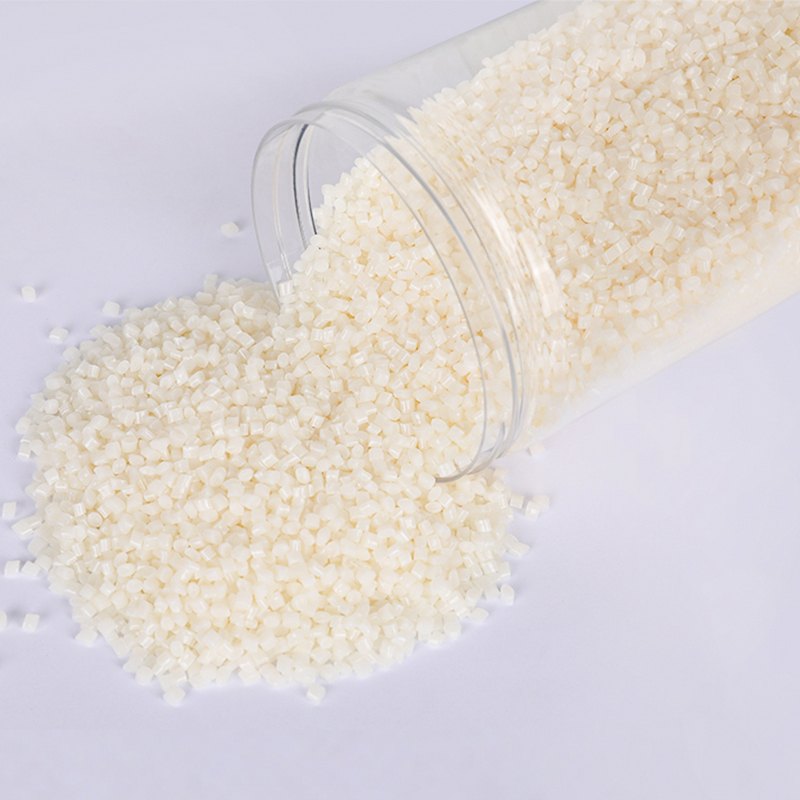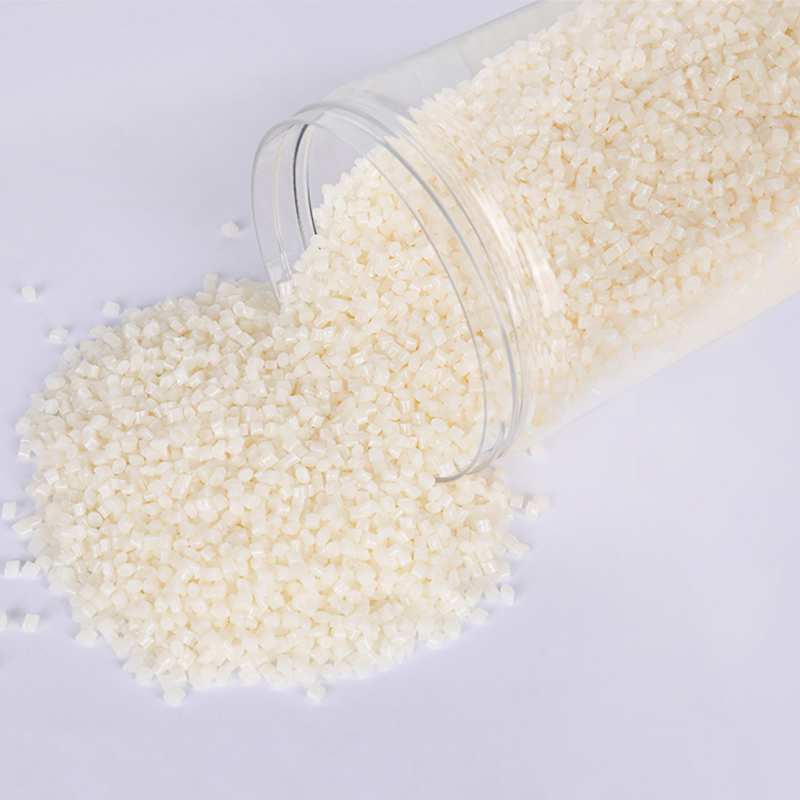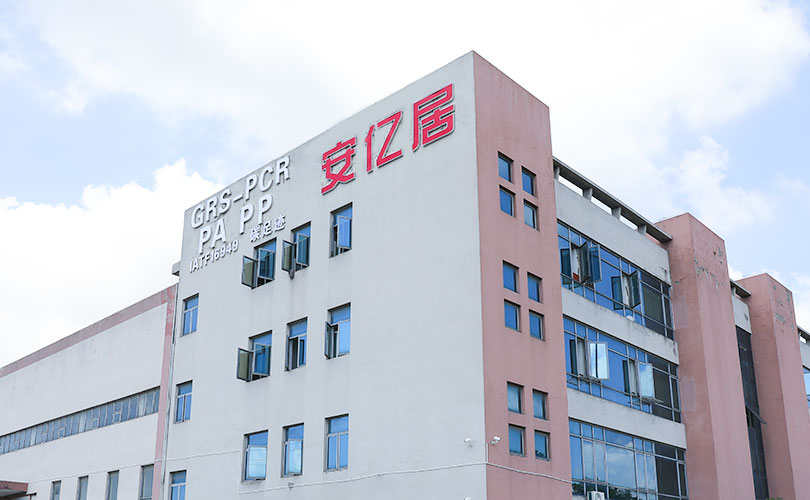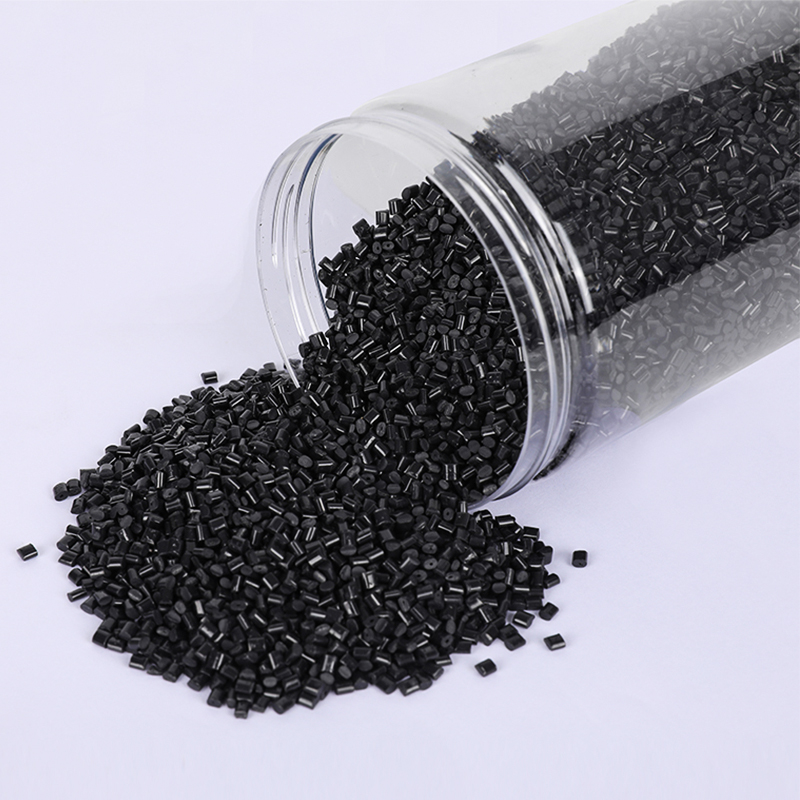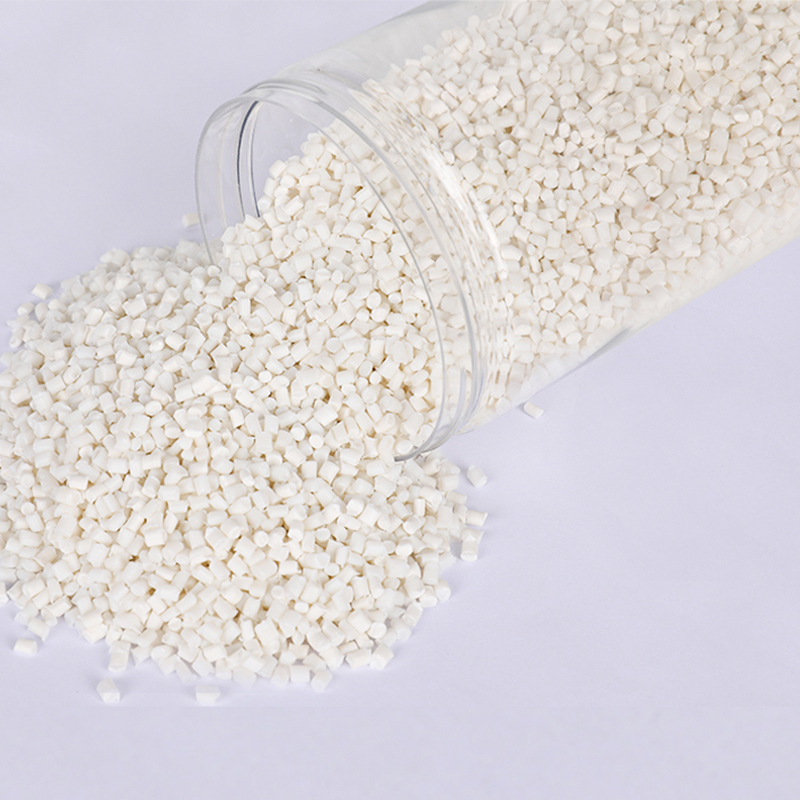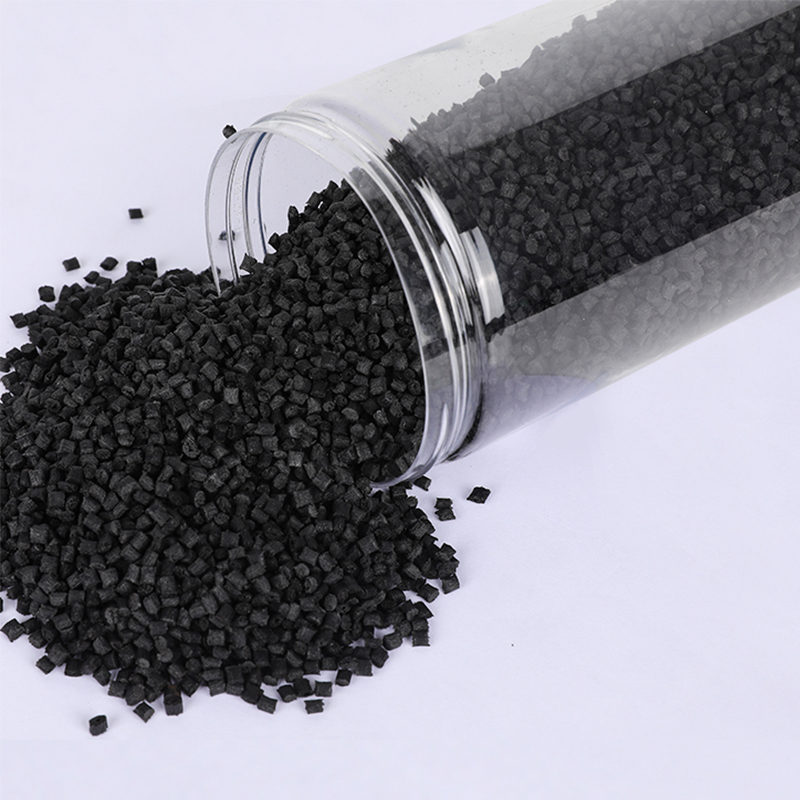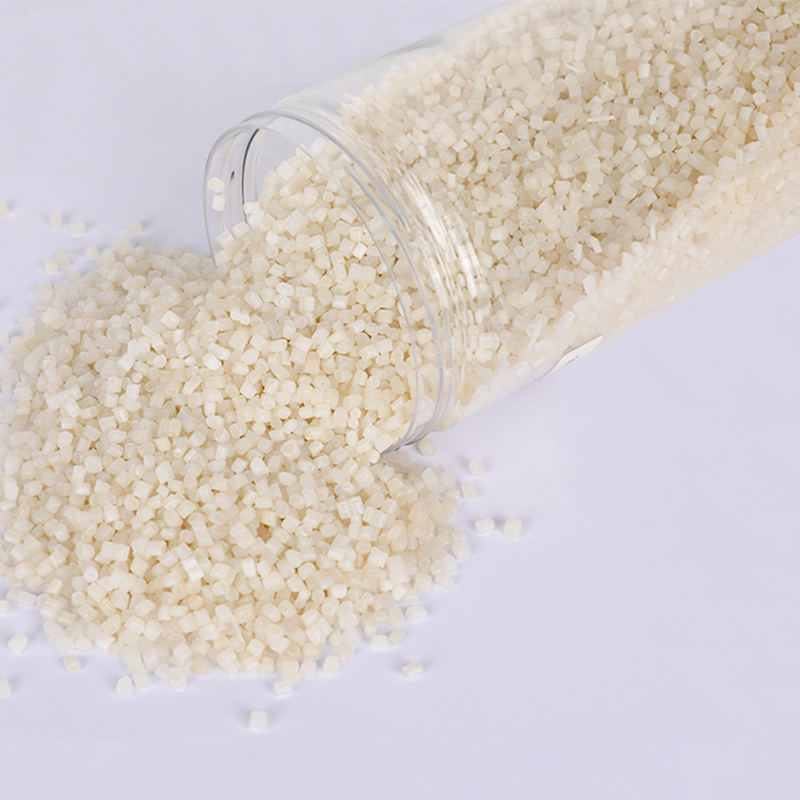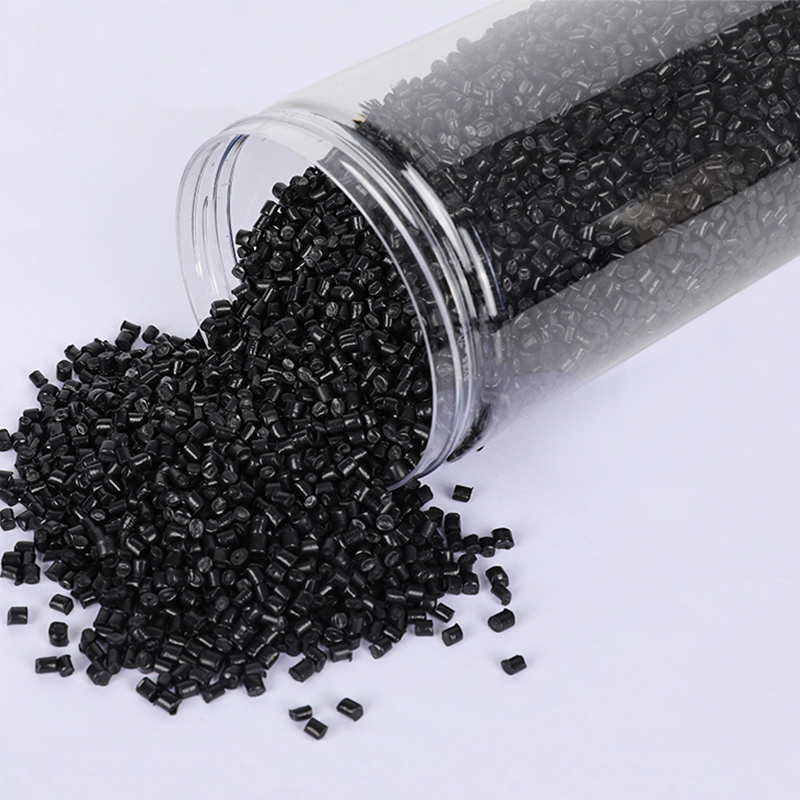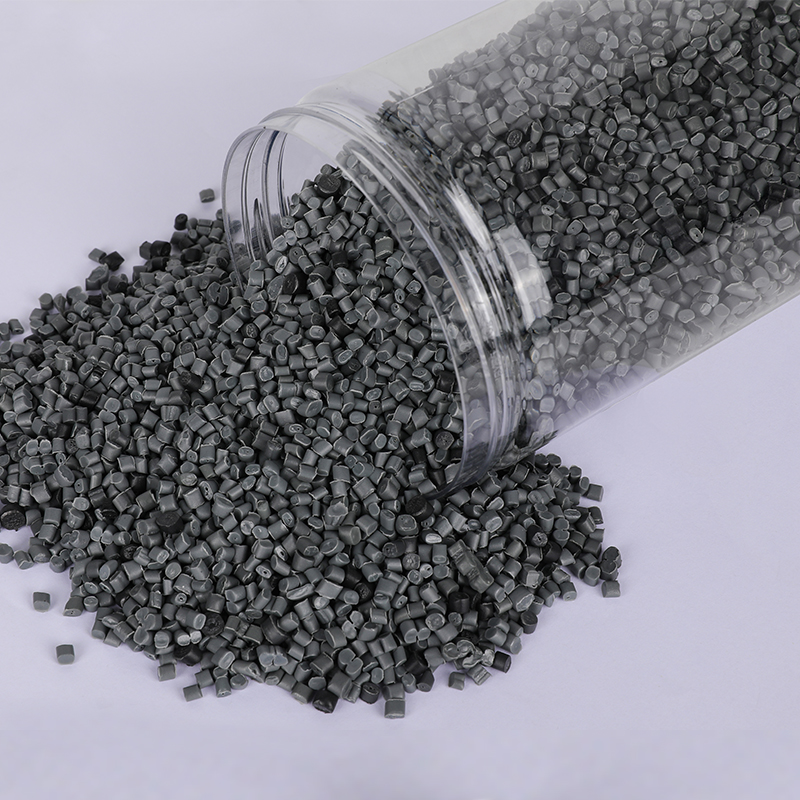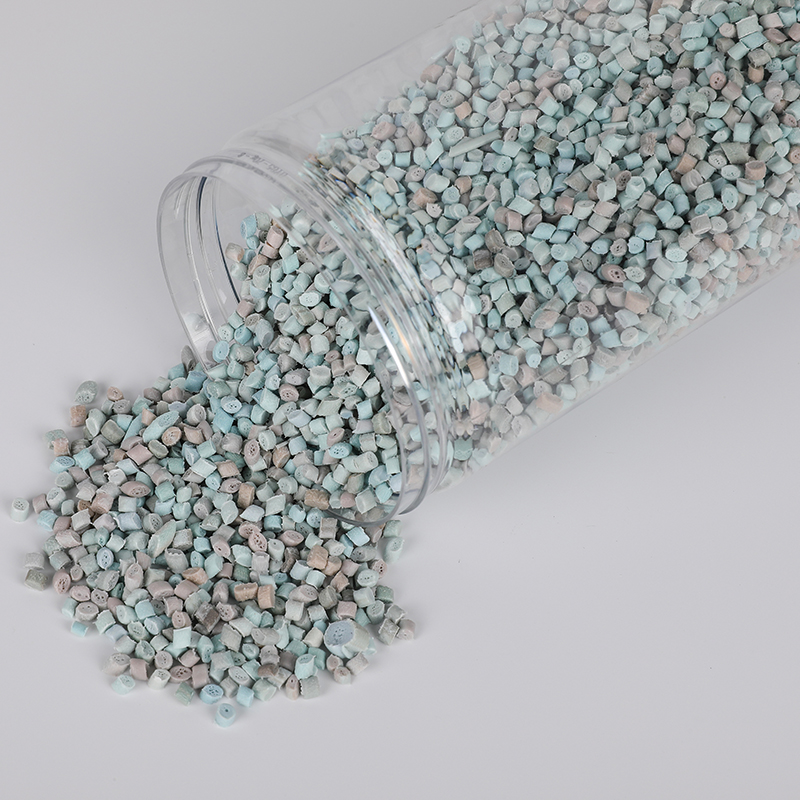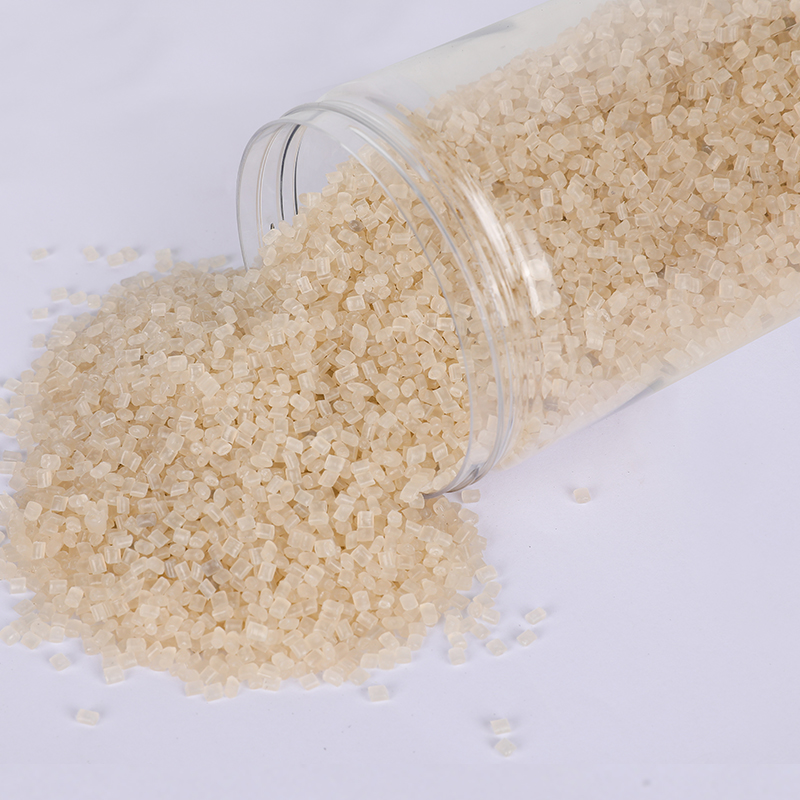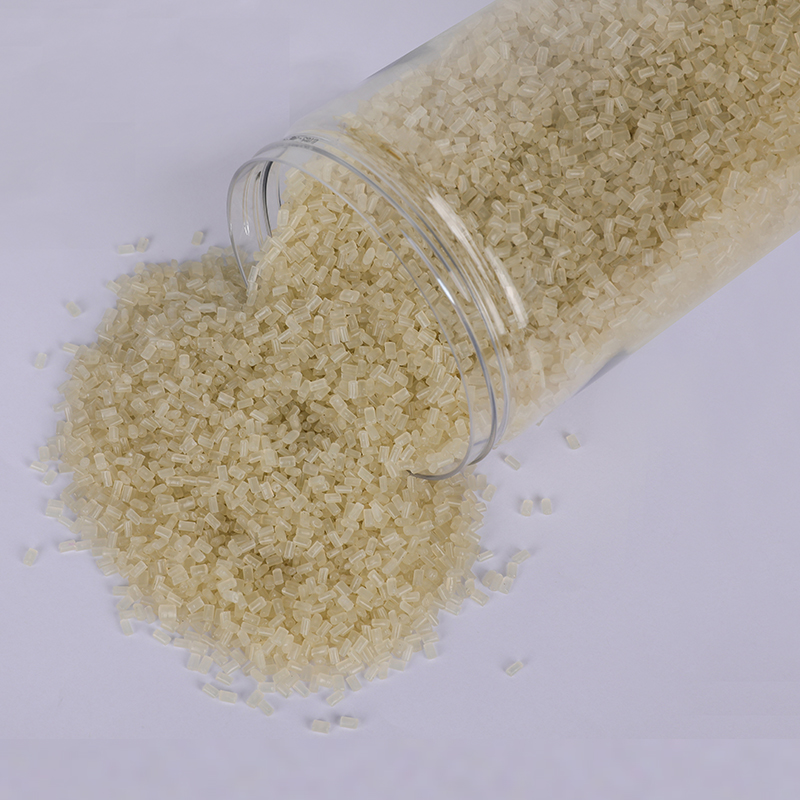PCR Recycled ABS Plastic Amorphous Resin is generally recyclable, and ABS resin granules can be recovered and processed for reuse in various applications. However, there are some considerations to keep in mind regarding the recyclability of ABS:
Compatibility in Recycling Streams:
ABS can be recycled, but its ease of recyclability may depend on the specific recycling infrastructure and processes in place. ABS is compatible with some common recycling streams, especially in facilities equipped to handle mixed plastics.
Separation and Sorting:
Efficient recycling of ABS often involves proper separation and sorting of materials. In recycling facilities, the ability to separate ABS from other plastics is crucial for maintaining material purity.
Contaminants:
The presence of contaminants, such as other polymers or non-plastic materials, can affect the recyclability of ABS. Contaminants may need to be removed through sorting and processing steps to ensure the quality of the recycled ABS.
Recycling Technologies:
The availability of suitable recycling technologies is essential for processing ABS resin granules. Mechanical recycling, which involves melting and reforming the material, is a common method. However, ABS can also be challenging to recycle due to potential degradation during processing.
Quality of Recycled ABS:
The quality of recycled ABS may vary based on the recycling process. Some properties, such as mechanical strength and impact resistance, may be affected, and steps may be taken to enhance the quality of the recycled material.
Closed-Loop Recycling:
Closed-loop recycling, where ABS is recycled within the same application or industry, can be more straightforward compared to open-loop recycling where ABS is recycled for different applications. Closed-loop systems help maintain material consistency.
Consumer Awareness and Collection:
The recyclability of ABS resin granules also depends on consumer awareness and participation in recycling programs. Adequate collection and proper disposal of ABS-containing products contribute to the recyclability of the material.
The ability to easily combine recycled ABS plastic amorphous resin with other materials in the manufacturing process can depend on several factors, including the compatibility of ABS with the other materials, the specific requirements of the manufacturing process, and the desired properties of the final product. Here are some considerations:
Material Compatibility:
ABS is generally compatible with a variety of materials, and it can be blended or co-processed with other polymers to achieve specific performance characteristics. However, the compatibility may vary based on the specific type of ABS and the other materials involved.
Blending with Virgin ABS:
Recycled ABS plastic amorphous resin can often be blended with virgin ABS to achieve a desired balance of recycled content and performance. This is common in processes like injection molding.
Additives and Fillers:
Depending on the desired properties of the final product, recycled ABS can be compounded with additives, reinforcements, or fillers. These may include materials such as glass fibers, flame retardants, or other polymers.
Color Matching:
Recycled ABS may have variations in color based on the source of the recycled material. Manufacturers often have the capability to add colorants or pigments during processing to achieve specific colors and match the requirements of the product.
Processing Conditions:
The processing conditions, such as temperature and pressure, can impact the ability to combine recycled ABS with other materials. Adjustments in processing parameters may be necessary to ensure proper blending and compatibility.
Adhesion and Bonding:
Depending on the manufacturing process, the adhesion between recycled ABS and other materials may be a consideration. Surface treatments or compatibilizers may be used to improve bonding in multi-material assemblies.
Testing and Optimization:
Manufacturers typically conduct testing to assess the performance of blends or composite materials. This includes evaluating mechanical properties, thermal stability, and other relevant factors. Optimization may be required to achieve the desired balance of properties.
Application-Specific Considerations:
The ease of combining recycled ABS with other materials depends on the specific application and performance requirements. Some applications may have strict material compatibility standards, while others may be more flexible.

 简体中文
简体中文 English
English